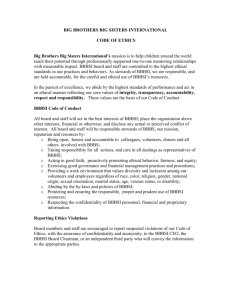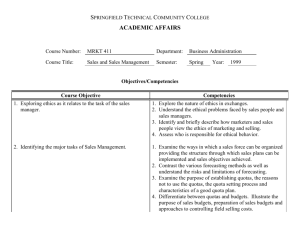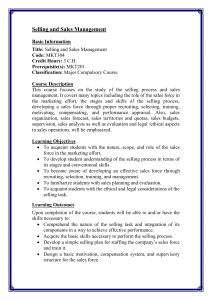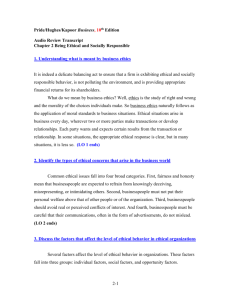Managing for Organizational Integrity –Lynn Sharp Paine
advertisement
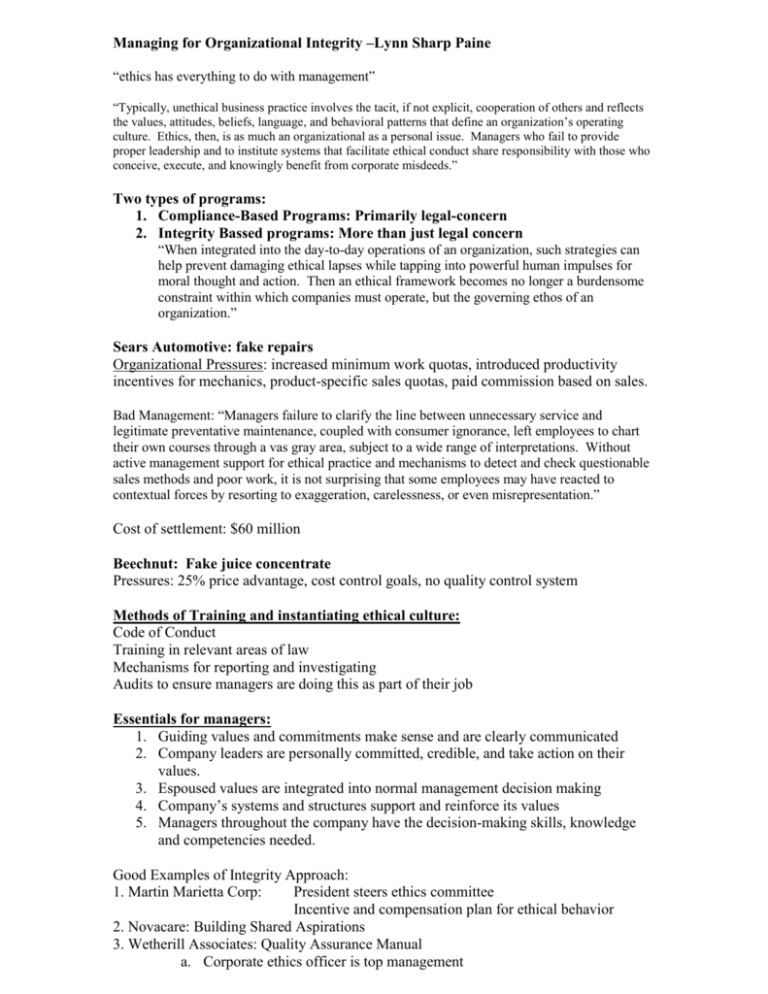
Managing for Organizational Integrity –Lynn Sharp Paine “ethics has everything to do with management” “Typically, unethical business practice involves the tacit, if not explicit, cooperation of others and reflects the values, attitudes, beliefs, language, and behavioral patterns that define an organization’s operating culture. Ethics, then, is as much an organizational as a personal issue. Managers who fail to provide proper leadership and to institute systems that facilitate ethical conduct share responsibility with those who conceive, execute, and knowingly benefit from corporate misdeeds.” Two types of programs: 1. Compliance-Based Programs: Primarily legal-concern 2. Integrity Bassed programs: More than just legal concern “When integrated into the day-to-day operations of an organization, such strategies can help prevent damaging ethical lapses while tapping into powerful human impulses for moral thought and action. Then an ethical framework becomes no longer a burdensome constraint within which companies must operate, but the governing ethos of an organization.” Sears Automotive: fake repairs Organizational Pressures: increased minimum work quotas, introduced productivity incentives for mechanics, product-specific sales quotas, paid commission based on sales. Bad Management: “Managers failure to clarify the line between unnecessary service and legitimate preventative maintenance, coupled with consumer ignorance, left employees to chart their own courses through a vas gray area, subject to a wide range of interpretations. Without active management support for ethical practice and mechanisms to detect and check questionable sales methods and poor work, it is not surprising that some employees may have reacted to contextual forces by resorting to exaggeration, carelessness, or even misrepresentation.” Cost of settlement: $60 million Beechnut: Fake juice concentrate Pressures: 25% price advantage, cost control goals, no quality control system Methods of Training and instantiating ethical culture: Code of Conduct Training in relevant areas of law Mechanisms for reporting and investigating Audits to ensure managers are doing this as part of their job Essentials for managers: 1. Guiding values and commitments make sense and are clearly communicated 2. Company leaders are personally committed, credible, and take action on their values. 3. Espoused values are integrated into normal management decision making 4. Company’s systems and structures support and reinforce its values 5. Managers throughout the company have the decision-making skills, knowledge and competencies needed. Good Examples of Integrity Approach: 1. Martin Marietta Corp: President steers ethics committee Incentive and compensation plan for ethical behavior 2. Novacare: Building Shared Aspirations 3. Wetherill Associates: Quality Assurance Manual a. Corporate ethics officer is top management








